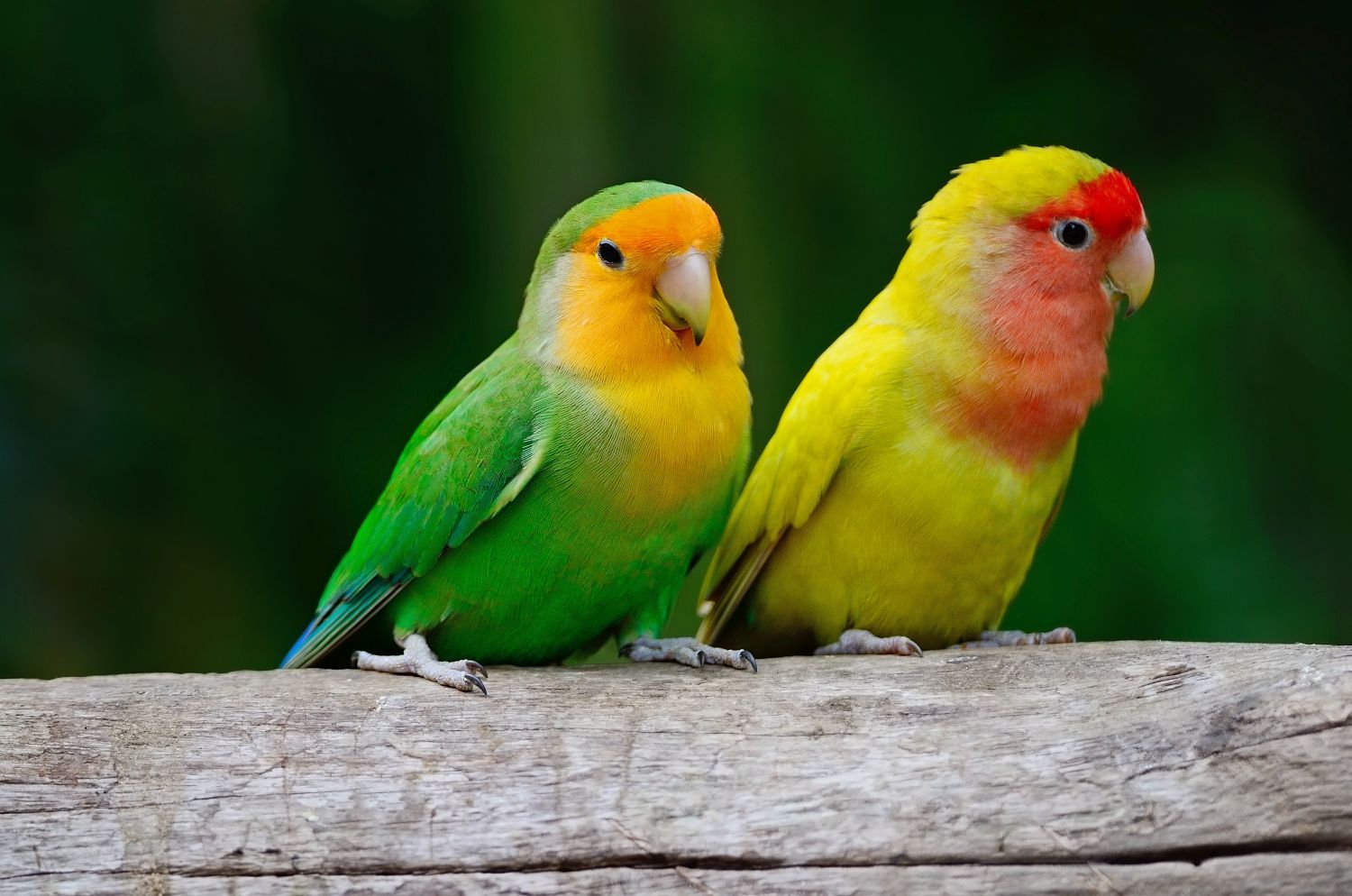
Lovebird
If you’re seeking a bird with abundant affection and captivating charm, look no further than the Lovebird. These small parrots are known for their vibrant colors, endearing personalities, and their tendency to form strong emotional bonds with their human companions. Lovebirds thrive on social interaction, mental stimulation, and a nurturing environment. In this section, we will delve into the world of Lovebird care, discussing their dietary requirements, suitable housing arrangements, health considerations, behavior traits, and tips on fostering a loving relationship with these delightful birds.
Diet
Lovebirds require a varied diet consisting of high-quality pellets, fresh fruits, vegetables, and occasional seeds as treats.Housing
Provide a spacious cage with toys, perches, and room for flight. Lovebirds appreciate social interaction and should ideally be kept in pairs or small groups.Behavior
Lovebirds are intelligent, active, and often display affectionate behavior towards their owners. They can be trained to perform simple tricks.Lifespan
Lovebirds can live up to 10-15 years on average, but with proper care, they can live even longer.Size and Appearance
Lovebirds are small, usually measuring around 5-7 inches in length. They have a stocky build and come in various color mutations.Training and Enrichment
Lovebirds are trainable and enjoy learning tricks. Provide toys, puzzles, and activities to keep them mentally stimulated.Social Needs
Lovebirds are highly social and thrive with daily interaction and companionship. Consider keeping them in pairs to prevent loneliness.Vocalization
Lovebirds are known for their chirping and can produce loud and repetitive sounds. Some individuals can learn to mimic sounds and words.Common Health Issues
Common health issues include respiratory infections, feather plucking, obesity, and vitamin deficiencies. Regular vet check-ups are important.Handling and Interactions
Handle lovebirds gently, allowing them to become comfortable with being touched. They appreciate being close to their owners.Breeding and Reproduction
Breeding lovebirds requires a separate breeding cage and careful monitoring. Consult an avian expert for detailed guidance.Legal Considerations
Check local regulations as some places may have restrictions on owning certain bird species.Welcoming a Lovebird into your life means embracing the affectionate nature and lively spirit of these small parrots. With their vibrant colors and loving personality, Lovebirds have a knack for brightening up your days. By ensuring they have a well-balanced diet, a comfortable and enriching living environment, regular veterinary check-ups, and plenty of social interaction and mental stimulation, you can provide a loving and nurturing home for your Lovebird, fostering a strong and enduring bond that will bring joy for years to come.


